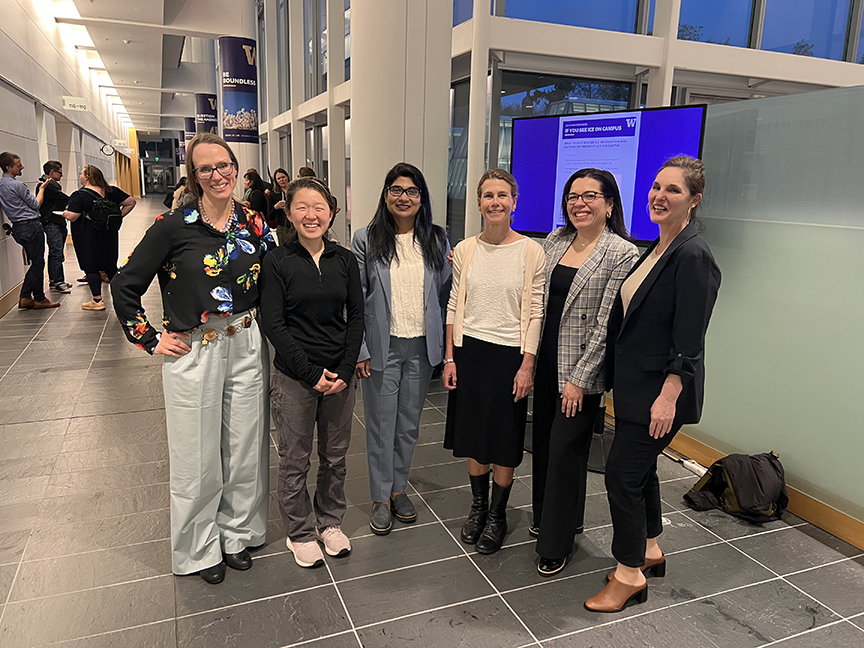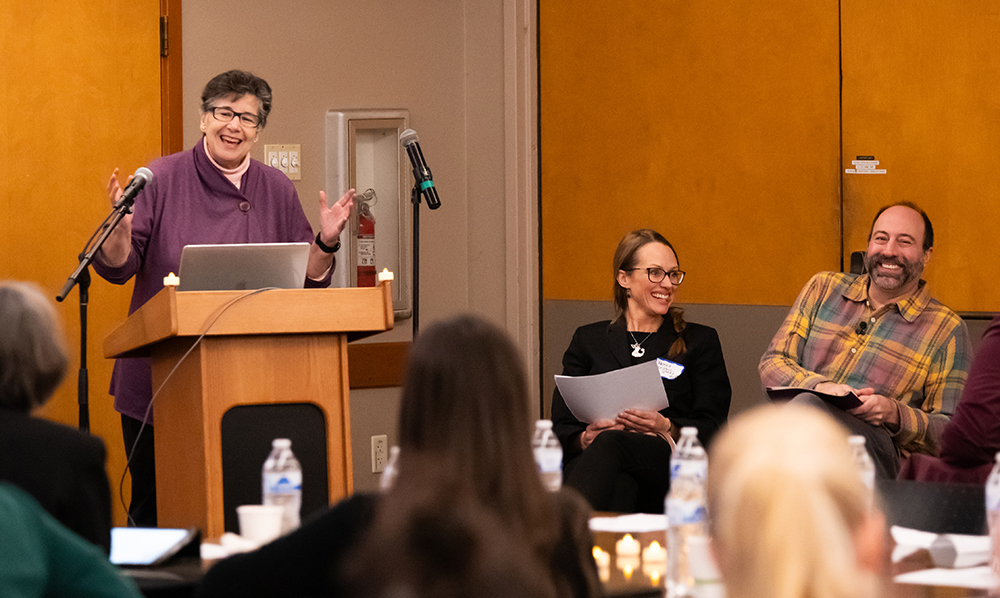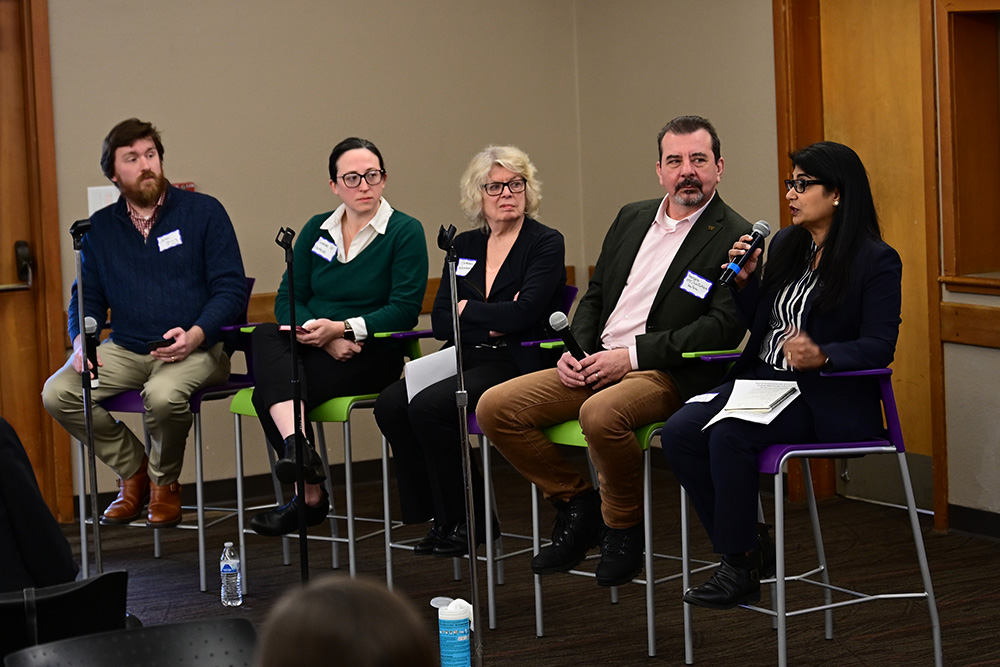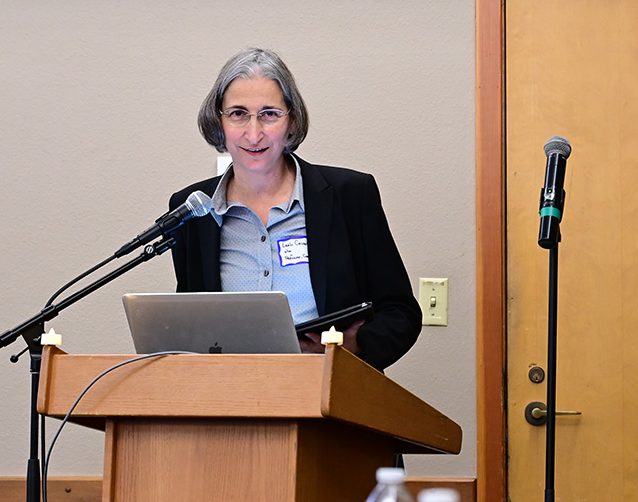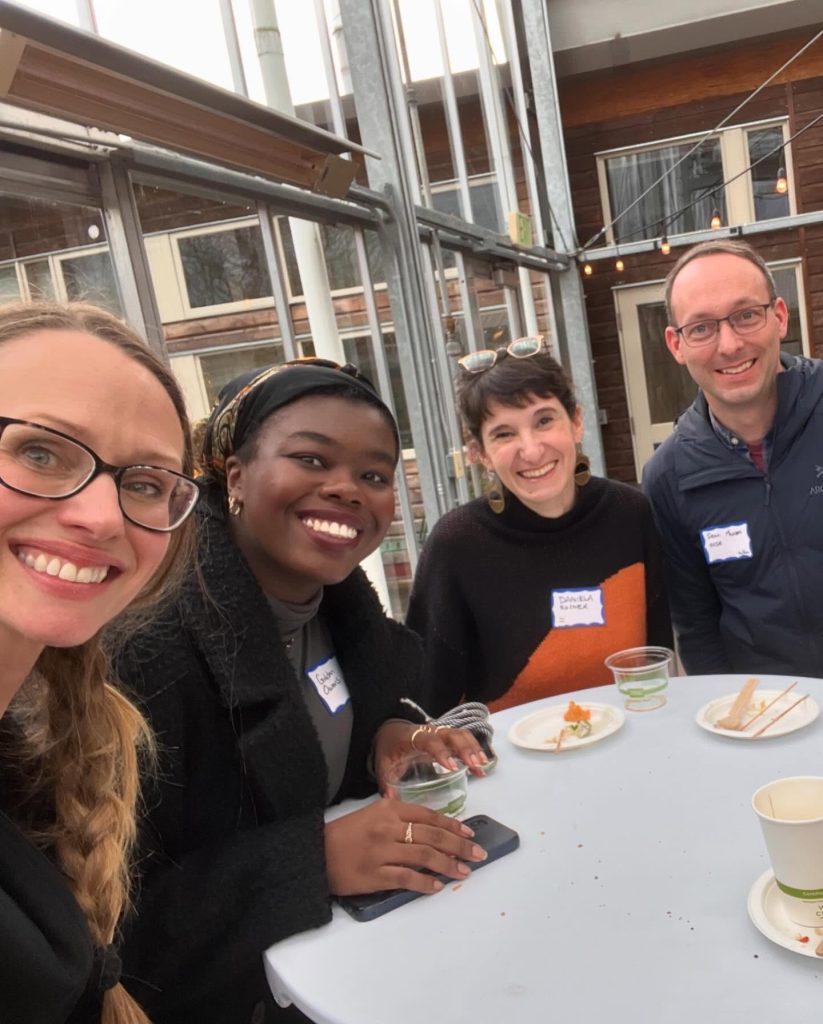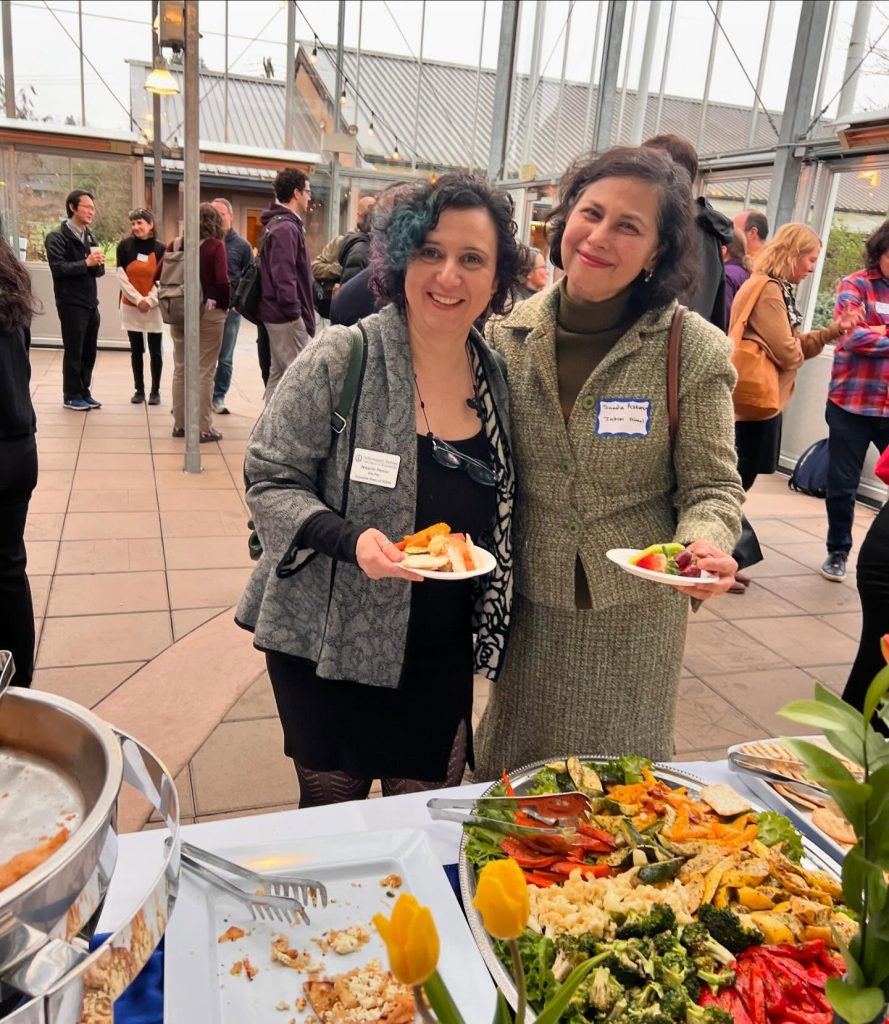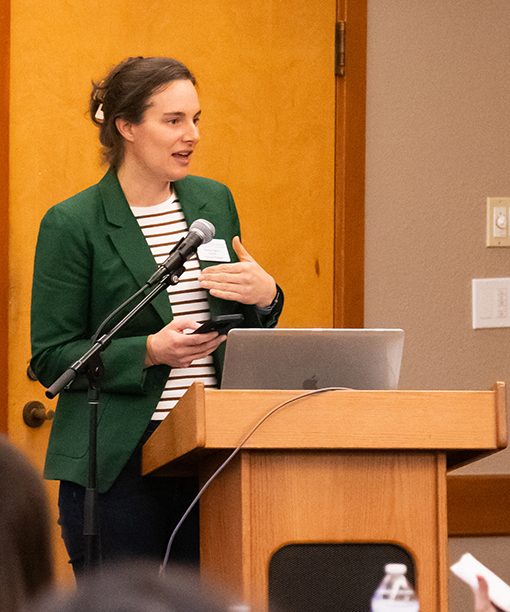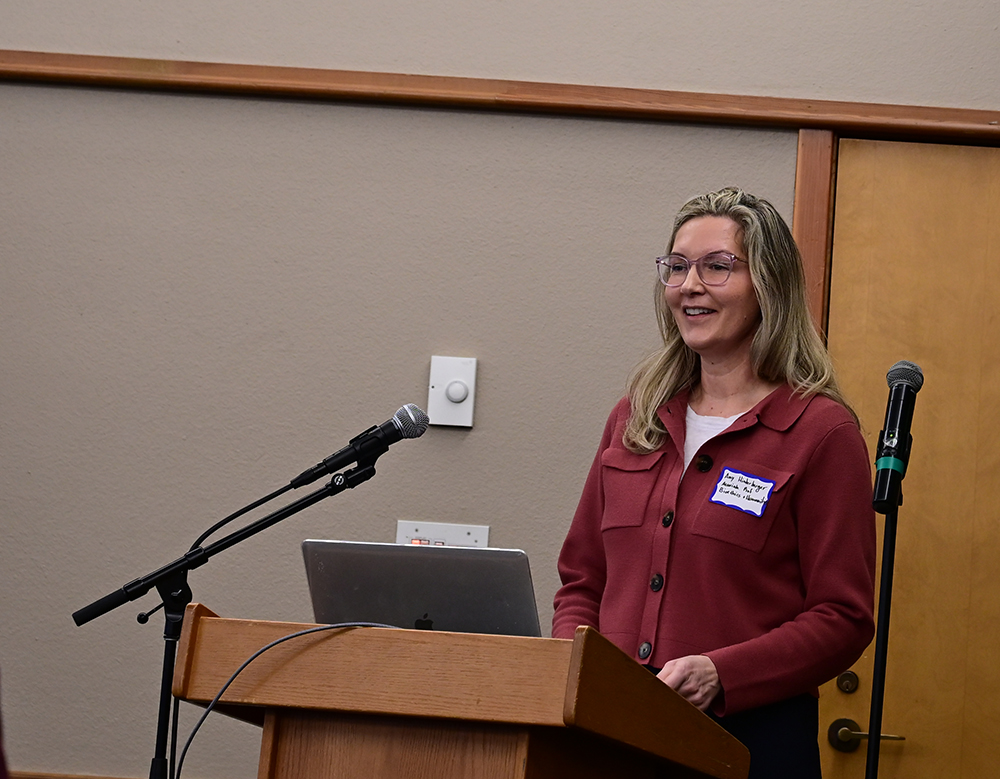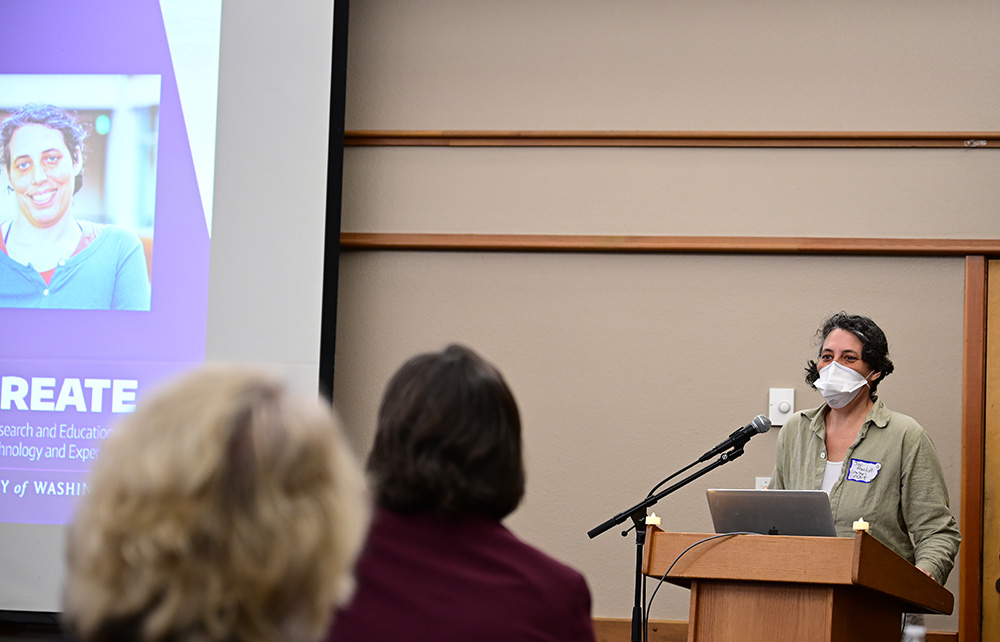Society + Technology at UW has partnered with the University of Washington’s Global Innovation Exchange (GIX) to offer a master’s-level course in the Master of Science in Technology Innovation program (MSTI 522): The History and Future of Technology: Responsible Technological Innovation.
GIX is a joint initiative between the UW College of Engineering and the Foster School of Business. The 18-month graduate program in technology innovation emphasizes practical, challenge-based learning across engineering, business, and design, and is housed in UW’s outpost in Bellevue.
The Instructor of Record, Monika Sengul-Jones, Ph.D., Director of Strategy and Operations for Society + Technology at UW, centers the interdisciplinary field of Science and Technology Studies (STS) to explore the historical, social, and cultural dimensions of technological innovation. STS approaches consider technology and innovation as socio-technical and cultural accomplishments that are both informed by and inform social structures of power. Throughout the course, students will cultivate responsible sensibilities as stewards of the social and societal impacts of emerging technologies.
As part of the collaboration with Society + Technology at UW, GIX students will also learn from the tri-campus, cutting-edge network of scholars affiliated with the initiative. Five experts will deliver guest lectures on the relationship between technology and society to this cohort of master’s students. The speaker series also includes a seasoned GIX lecturer who works at SAP to offer insights on responsibility and inclusiveness in enterprise software products. Dina Chawla, a graduate student in the Department of Human Centered Design and Engineering at UW Seattle, supports the class as a Reader/Grader.
Since 2017, this course has been developed and led by Linda Wagner, David Ribes, and Amanda Menking. In its current iteration, Past and Future of Technology is not only a keystone learning experience for GIX students to explore the historical, philosophical, and cultural foundations of innovation and technology, it is also an unparalleled opportunity to learn from UW’s extensive network of scholars working at this vital intersection.
Guest Speakers
(In order of appearance)
Topic: AI Agents and Responsibilities
Title: Second Voice, First Person: AI Surrogates and Digital Doppelgangers
Muhammad Aurangzeb Ahmad is a Research Scientist at the University of Washington’s Harborview Medical Center and an Affiliate Assistant Professor in the Division of Computing and Software Systems at the University of Washington, Bothell. He earned his Ph.D. in computer science from the University of Minnesota. His research focuses on artificial intelligence, algorithmic nudging (using algorithms to change human behavior), and personality emulation (software that can act like humans). Ahmad thinks extensively about the social, cultural, and ethical impact of AI and machine learning. His research has been covered by PBS and Discover Magazine. He’s spoken on a panel for the United Nations and in other venues.
Topic: Inclusion and Responsibility in Enterprise Software UX Research
Ellie Kemery is Principal AI User Research Lead for SAP Business AI and is a frequent guest speaker at GIX. Her work seeks to establish a culture of ethical research and design practices across SAP in a way that proactively informs the way teams build intelligent product experiences that all people love. She has worked with or for companies and organizations including Microsoft, IxDA, Design in Public, and Brooks Running. She has a degree from the UW’s Foster School of Business in Human Behavior and Entrepreneurship.
Topic: Privacy, Technology, and Governance
Katy E. Pearce is an Associate Professor in the Department of Communication at the University of Washington and holds affiliations with the Ellison Center for Russian, East European, and Central Asian Studies and the Center for an Informed Public. She is an expert in social and political uses of technologies and digital content in the transitioning democracies and semi-authoritarian states of the South Caucasus and Central Asia, but primarily Armenia and Azerbaijan. The main focus of her research is the adoption and use of information and communication technologies in diverse cultural, economic, and political contexts, mainly authoritarian post-Soviet states. On the adoption side, Pearce looks at barriers to use—often socioeconomic, but sometimes political or cultural. On the outcome of ICT use side, Pearce studies outcomes like decreasing or increasing inequality due to ICTs, cosmopolitanism, capital enhancement, civic engagement, demand for democracy, and social activism. Methodologically, most of her earlier work is quantitative modeling, while much of her more recent work is qualitative or mixed methods.
Topic: Habits by Design: Research and Ethics in Human-Computer Interaction
Alexis Hiniker is an Associate Professor in the Information School at the University of Washington and Director of the User Empowerment Lab. Through her work in human-computer interaction and ubiquitous computing, she investigates the ways in which everyday technologies make life worse for their users. Hiniker combines user-centered design methods with theory from a variety of disciplines to design, implement and evaluate new technical systems. Her current projects focus on compulsive technology use, dark patterns, voice interfaces, and arguments online. She has a Ph.D. in Human Centered Design and Engineering from the University of Washington, an M.A. in Learning, Design and Technology from Stanford University, and an A.B. in Computer Science from Harvard University.
Topic: Data Science and Ethics in Action
Anissa Tanweer is a Senior Social Scientist at the eScience Institute, an Affiliate Faculty member in the Department of Communication, and a sociotechnical expert for the Scientific Software Engineering Center (SSEC). She conducts ethnographic research on the practice and culture of computationally mediated science and applies a sociotechnical lens to the design and implementation of training programs in data-intensive academic research. Tanweer directs the UW Data Science for Social Good summer internship and ran the Data Science Studies Special Interest Group at UW from 2018-2021. Tanweer earned a Ph.D. in Communication from the University of Washington. She has published her research on topics such as ethics and data science in journals such as Social Studies of Science, Big Data & Society, and Harvard Data Science Review.
